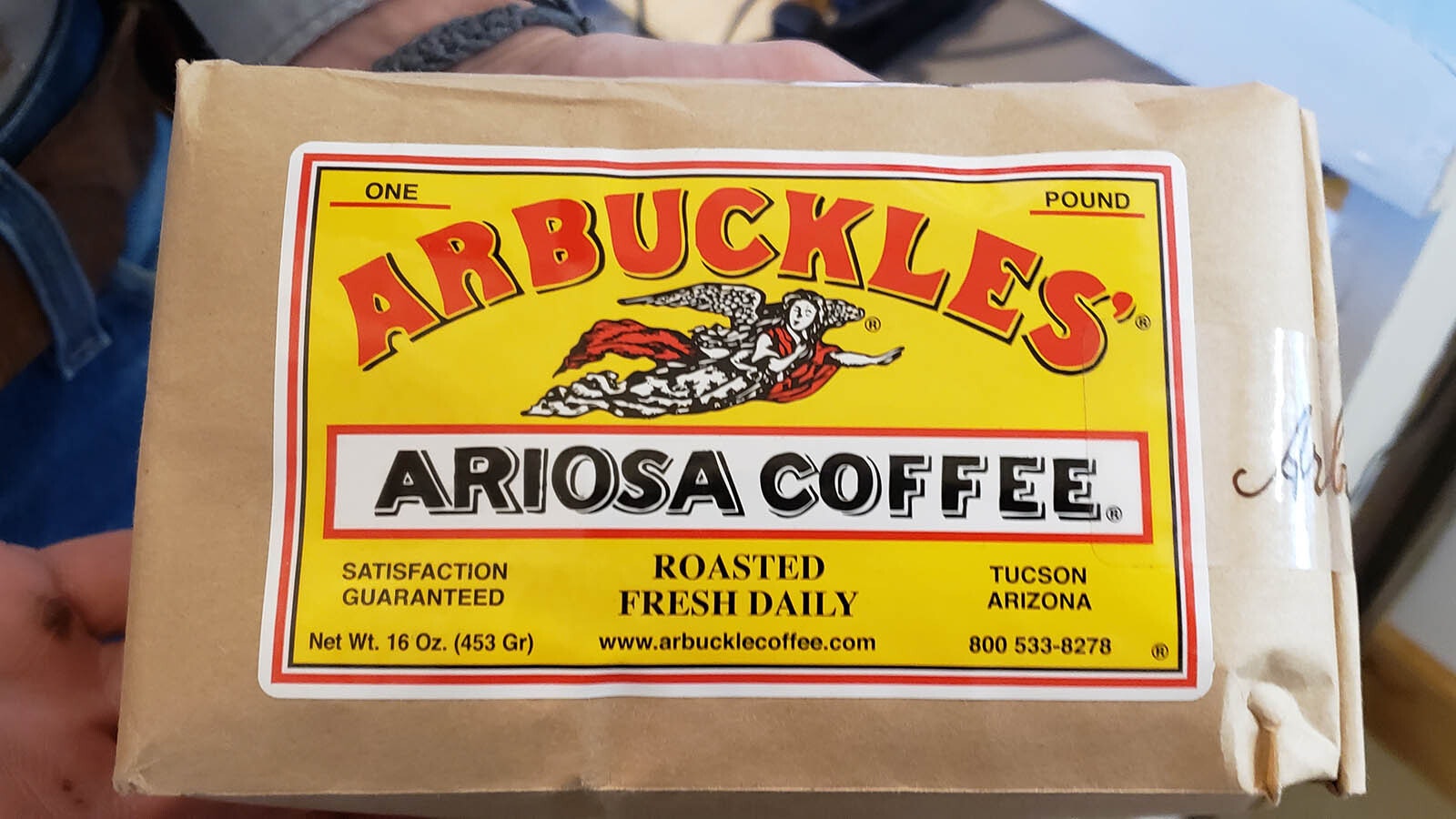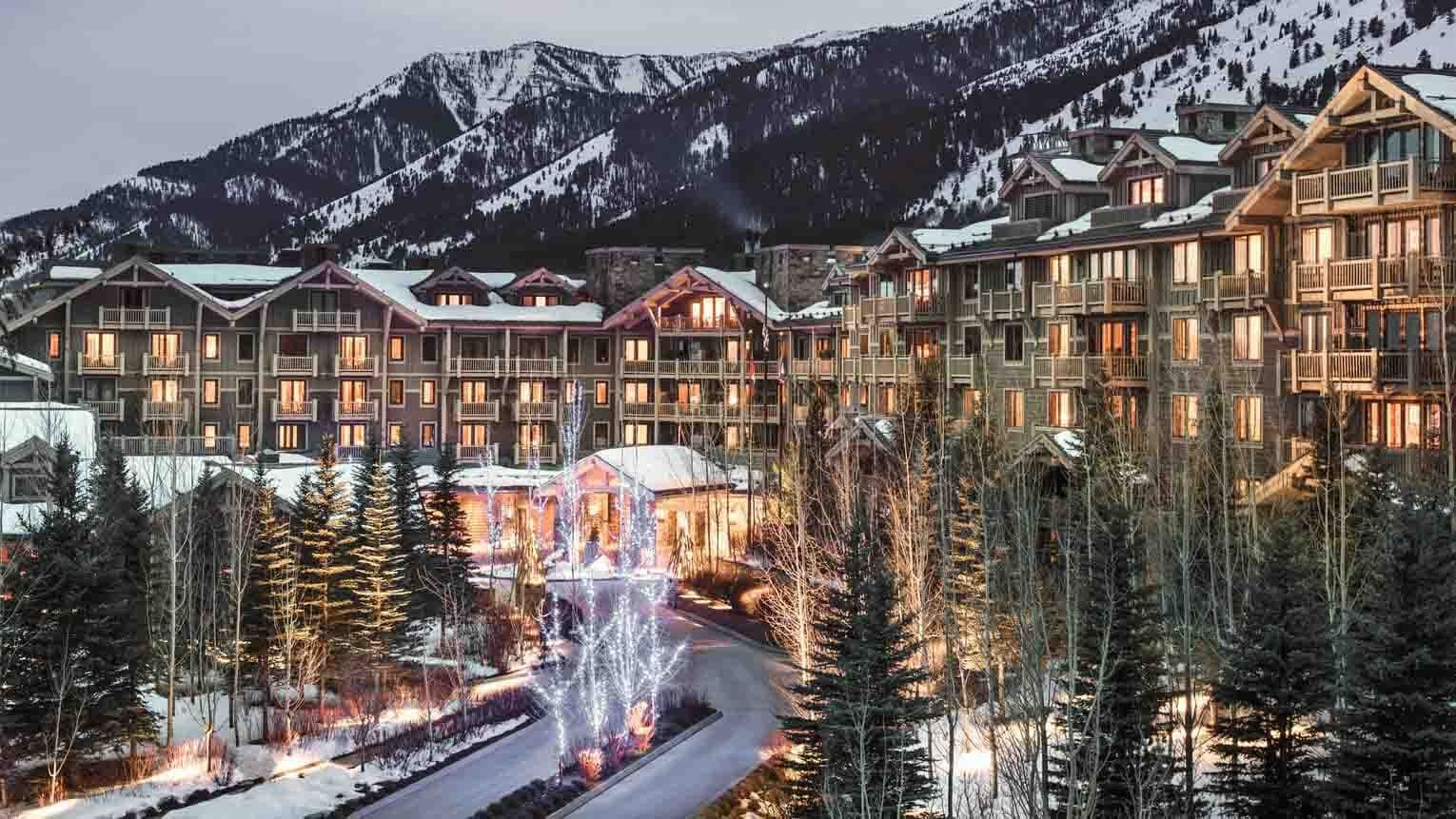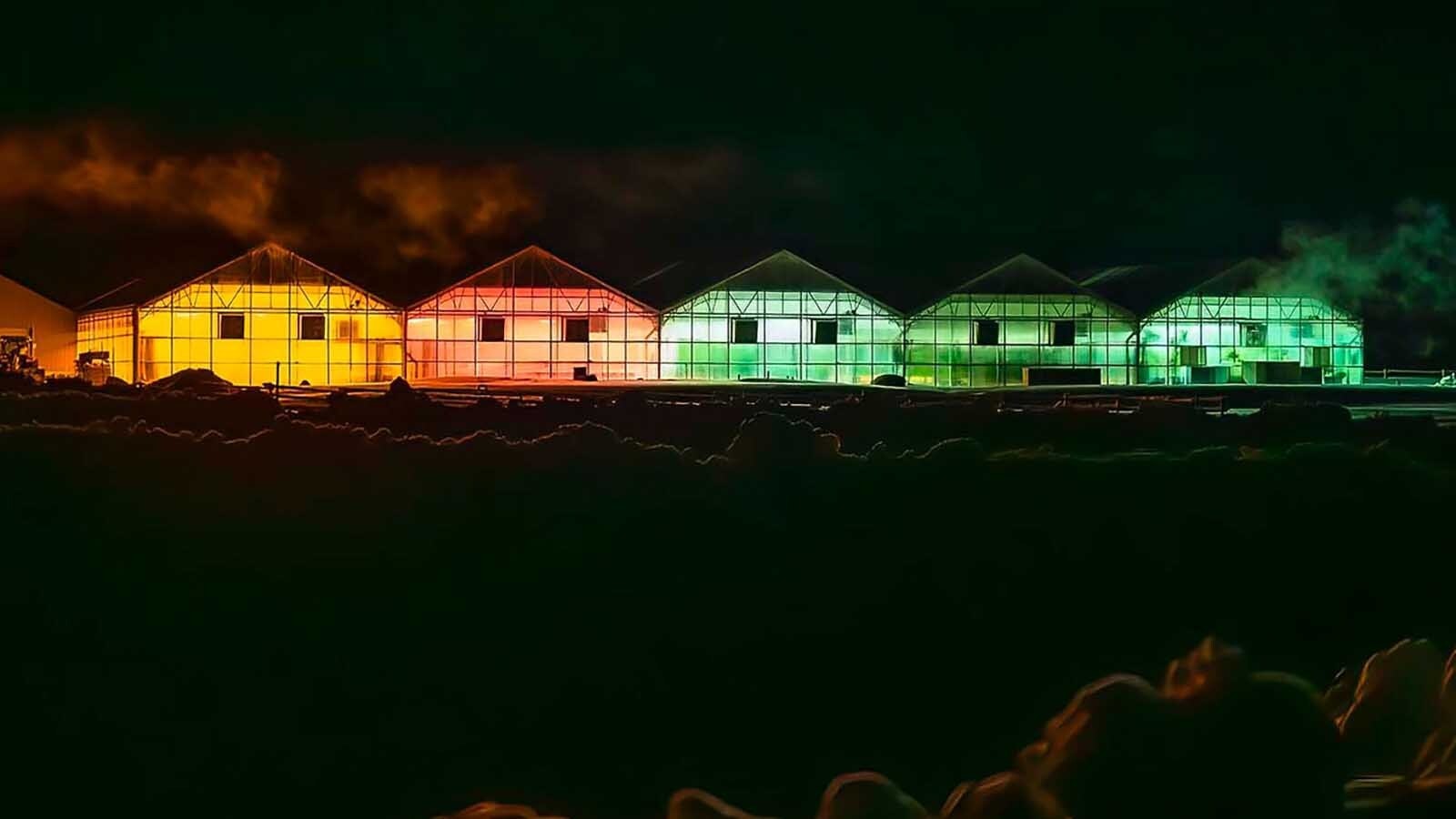Forgotten things can maintain a hold on our imaginations. And having discovered something long forgotten, we can’t help sharing the newly resurrected treasure.
That new life for old things is what drew an impromptu gathering to the recently opened Tri-County Mercantile in Chugwater, Wyoming, this week.
Joshua Hopkins, lately returned from adventures in Hawaii visiting ranches, pineapple plantations, and coffee farms — between relaxing on the beach — offered a coffee tasting like no other.
His found treasure was Arbuckles’ coffee, bought once upon a time by the 100-pound case by Chugwater’s historic Swan Land and Cattle Co.
That brand, which traces its history back to the Civil War era, was put to the test against a $60-a-bag brand of Kona Coffee Peaberry, touted for high notes that resemble pancake syrup — at least in the imagination of an enterprising advertising copywriter.
Arbuckles’ coffee, meanwhile, which tasters overwhelming preferred, not only was determined the better bang for tasters’ buck, it has a deep connection to the West, including Wyoming.
Hopkins discovered the product, which is now being carried by the newly opened Tri-County Mercantile, while on an adventure of a different kind, this time historical.
Hopkins, who’s also vice president of a local historical society, was in a library paging through brittle paper and dusty books researching the Swan Land and Cattle Co., located on the south side of Chugwater at the junction of Happy Hollow Road and Lone Tree Road.
The latter is otherwise known as the more boringly named Wyoming Highway 313.

What Lies In Dust
“I’m just always researching,” Hopkins told Cowboy State Daily.
Swan Land and Cattle Co. in its heyday was among the largest ranching operations in the nation with more than 1 million acres of land. Its operation spanned the late 19th and early 20th centuries.
At peak operation, more than 113,000 head of cattle roamed those acres. In 1904, it converted to sheep, peaking at 112,000 head in 1911.
The ranch liquidated its holdings in 1945 just as World War II was ending and the world was changing. By 1964, when it was designated a historic landmark, it managed just 5,400 acres.
The Swan, Hopkins said, also had its own mercantile store at the time. The name of that mercantile was Tri-County Mercantile. That name now graces that of a new grocer in Chugwater, which sells a variety of locally made products, as well as groceries like milk and sausages, for the local community located about 40 miles north of Cheyenne along Interstate 25.
“I was really just doing some research on how they did operations and stuff, and looking for old pictures,” Hopkins said.
But in the midst of that search, Hopkins found something else. A nine-page letter by a former ranch hand detailing everything he could remember about working on the historic ranch.
“He actually had a section for groceries,” Hopkins said. “And in that he says Arbuckles’ was bought in 100-pound boxes containing 1-pound bags.”
Forgotten, Not Lost
With a little research, Hopkins figured out that Arbuckles’ Coffee was not lost to the West. Just forgotten.
“So, I contacted them and said, ‘Hey, do you guys wholesale this?’ They said, ‘Sure we do!’”
As simple as that, Hopkins knew he had a new hit product for Chugwater’s new mercantile, which he opened last year with partners Jess and Arden Miller.
“We have a lot of people who want to buy coffee, and everybody has different coffees,” he said. “I wanted to find something unique, and they had a lot of different blends.”
It didn’t hurt that those blends turned out to be more economical than other coffees while offering similar high-quality tasting profiles.
Nor does it hurt that there’s a deep historical connection between the coffee and Wyoming – and to Chugwater’s historic Swan Land and Cattle Co.

It’s How The West Was Won
Arbuckles’ Coffee is the coffee that won the West.
Prior to Arbuckles’, coffee beans were sold green in general stores. Customers had to then roast their own beans either on a wood stove or, more likely out on the range, in a skillet over a smoky campfire.
Burning even one coffee bean is a little like burning a single bean in a pot of soup. The entire thing will be ruined. No saving it.
Only after perfectly roasting the green coffee beans could they be ground and brewed. But even if no beans were burnt, roasting green coffee beans to consistent perfection over a campfire is a near impossible task. No pot of coffee is going to be the same quality twice.
John and Charles Arbuckle, who would later buy the PO Ranch north of Cheyenne, fixed that problem.
In 1865, they figured out how to glaze their beans with an egg white and sugar mixture that would seal flavor in place, keeping the beans fresh for a train ride West.
Beans no longer needed to be roasted on a wood stove or over an open campfire out on the range. Everyone could have perfect coffee, every time.





Preferred By Cowboys
The Arbuckle brothers’ new patented coffee was an instant success. It was in such widespread use across the West, including Wyoming, that most Cowboys didn’t know there were any other brands of coffee available.
It was even the name of a post office in Laramie County, which was named Ariosa, after Arbuckle’s coffee. That tidbit is available from the Wyoming State Library’s Wyoming Places project, online at https://places.wyo.gov/.
The bright yellow packages with bold red letters, Arbuckles’ Ariosa Coffee, were found in the stores of every good chuckwagon cook.
Each bag came with a peppermint candy stick — giving the cooks a great, Tom Sawyer move. Cowboys on the trail would fight over who got to grind the coffee in exchange for that little peppermint stick.
Today, Arbuckles’ still comes in the same bright yellow packages with bold letters. And they still have that little peppermint stick to fight over.
The coffee can be bought online, as well as in Wyoming from the Tri-County Mercantile in Chugwater or from Lou Taubert Ranch Outfitters in Casper. It’s Wyoming history in a cup — not a bad way to start the morning at all.





